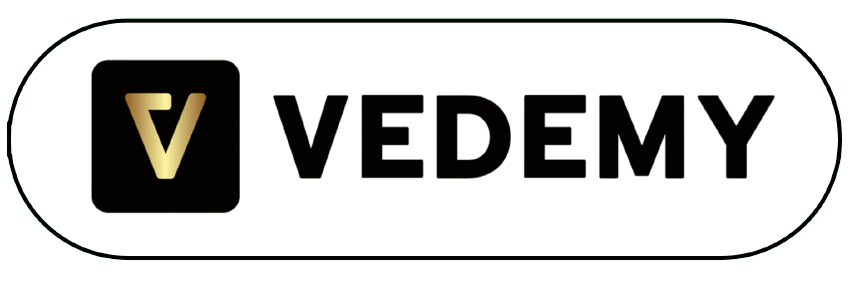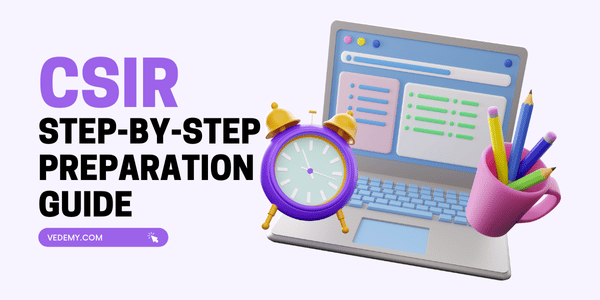Blog Title:
One-Month Strategy to Ace the CSIR NET Life Sciences Exam
Introduction
Preparing for the CSIR NET Life Sciences exam in just one month is a challenging yet achievable goal if approached with a focused and strategic plan. This exam requires not only deep conceptual understanding but also efficient time management. With a well-structured plan, the right resources, and consistent practice, you can maximize your chances of success. This blog outlines a one-month preparation strategy, helping you make the most of your time.
Week 1: Build a Strong Foundation
Goal: Cover the basics and understand high-weightage topics.
- Familiarize yourself with the exam structure (Parts A, B, and C) and the syllabus.
- Identify high-weightage topics like Molecular Biology, Biochemistry, Cell Biology, and Genetics.
- Use standard books (e.g., Lehninger’s Biochemistry, Molecular Biology of the Gene by Watson) for conceptual clarity.
- Refer to concise guides tailored for CSIR NET for quick revisions.
- Molecular Biology: DNA replication, transcription, and translation.
- Biochemistry: Enzyme kinetics, metabolism, and bioenergetics.
- Cell Biology: Cell cycle, signaling pathways, and membrane transport.
- Dedicate 2 hours to each major topic and 1 hour to General Aptitude (Part A).
- Practice 20-30 questions daily from previous years’ papers.
- Create short notes for quick revision and highlight essential formulas and pathways.
Week 2: Dive Deeper into Advanced Topics
Goal: Focus on analytical and application-based questions (Part C).
- Immunology: Types of immunity, antigen-antibody interactions.
- Ecology: Population ecology, biodiversity, and conservation.
- Techniques: Gel electrophoresis, PCR, and microscopy.
- Solve Part C questions, focusing on data interpretation and case-based scenarios.
- Review past year questions to understand recurring patterns.
- Attempt mock tests focusing on balancing speed and accuracy.
- Set time limits for solving specific sections to simulate exam conditions.
- Watch short video tutorials for complex topics.
- Use flashcards for memorizing terms and definitions.
Week 3: Revise and Consolidate Knowledge
Goal: Reinforce concepts and focus on weak areas.
- Review mistakes made in mock tests and strengthen weak areas.
- Allocate more time to topics you find challenging.
- Revise previously prepared notes and practice frequently asked questions.
- Create summary charts for pathways, cycles, and processes like glycolysis and Krebs cycle.
- Take full-length tests and evaluate your performance.
- Analyze your speed and accuracy in each section.
- Practice reasoning, numerical ability, and comprehension questions.
- Use standard books like R.S. Aggarwal for quantitative aptitude.
Week 4: Final Preparation and Revision
Goal: Maximize retention and ensure exam readiness.
- Focus on high-yield topics and important formulas.
- Spend time revising diagrams, cycles, and critical pathways.
- Attempt at least three full-length tests this week.
- Review incorrect answers and understand the logic behind the correct ones.
- Allocate more time to sections where you consistently perform well.
- Ensure you are comfortable with frequently asked questions.
- Sleep well, stay hydrated, and avoid last-minute cramming.
- Meditate or exercise to reduce stress and improve focus.
Conclusion
Preparing for the CSIR NET Life Sciences exam in one month is intense but achievable. By prioritizing high-weightage topics, practicing regularly, and maintaining a disciplined schedule, you can significantly enhance your chances of success. Remember, the key is consistency, confidence, and effective time management. Good luck!
References
- CSIR NET Official Website: CSIR NET Syllabus and Guidelines
- Nelson DL, Cox MM (2017). Lehninger Principles of Biochemistry. Freeman, New York.
- Watson JD et al. (2013). Molecular Biology of the Gene. Pearson Education.
- R.S. Aggarwal (2018). Quantitative Aptitude for Competitive Examinations. S. Chand Publishing.
- Previous CSIR NET Question Papers and Analysis Reports.
- Online Video Resources: NPTEL Life Sciences Lectures.
Stay Healthy and Positive:
Focus on Strengths:
Full-Length Mock Tests:
Quick Revisions:
General Aptitude:
Mock Tests:
Consolidate Key Points:
Revisit Weak Topics:
Supplementary Learning:
Time Management:
Practice Problem-Solving:
Target Complex Topics:
Revise Key Concepts:
Daily Targets:
Focus Areas:
Study Material:
Understand the Exam Pattern and Syllabus:







Leave a Comment